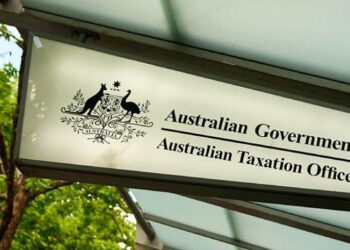“We remain concerned that these changes, which will prevent certain distributions that are funded by capital raisings from being frankable, will inadvertently catch many normal and legitimate commercial situations and will competitively disadvantage profitable and growing companies,” Peter Burgess, SMSFA CEO told SMSF Adviser.
The federal government on Thursday tabled the Superannuation (Objective) Bill 2023 with key wording remaining unchanged from its initial proposal released earlier this year.
The Bill defines the objective of super as: “to preserve savings to deliver income for a dignified retirement, alongside government support, in an equitable and sustainable way”.
Treasurer Jim Chalmers said in the future, any proposed changes to super legislation will be judged against the objective.
“This will make policymakers more accountable when considering changes that affect Australians’ retirement savings,” he said.
Mr Burgess said the SMSFA has always supported the need for an objective of super.
“We think it’s a good idea that we all have a shared understanding of what we are trying to achieve,” he said.
“By making policymakers more accountable when considering changes to the superannuation rules, it will help to build confidence in the super system which is critical when it comes to voluntary contributions and encouraging individuals to contribute more to their superannuation.”
However, as it essentially remains unchanged from the draft legislation introduced for consultation in September, the SMSFA said it still has concerns over the implementation of the bill.
In its submission on the draft legislation, the SMSFA made three recommendations:
- Legislate the objective in standalone legislation.
- Ensure the objective is clear and self-contained with clear definitions, operative and interpretive provisions.
- Make clear that the objective is to apply solely in the context of policy design and implementation only and does not affect the operation of existing laws.
It stated that this would ensure the legislation does not extend beyond its remit to other stakeholders such as regulators or superannuation trustees, and does not change the operation or interpretation of existing superannuation law, prudential standards or governing rules of superannuation entities.
The SMSFA said to ensure suitability of purpose, the draft policy settings need further refinement.
“Superannuation is just one component of a broader retirement ecosystem system. The framing of the Retirement Income Review and the final report highlights the importance of considering the broader policy impacts across the entire retirement system,” the submission stated.
“What is proposed is an objective which focuses on a single element of the retirement income system.”
It claimed that although the explanatory notes attached to the draft exposure acknowledge the three retirement incomes, the broader retirement system – including aged care, and housing security – is not contemplated in the operation of the objective of superannuation.
“An objective that considers superannuation in isolation of the other retirement pillars risks distorted outcomes and negative impacts over the medium and long term,” it stated.
The SMSFA was not the only professional body that raised concerns about the wording of the objective in its draft form.
IPA general manager of technical policy, Tony Greco, told SMSF Adviser that the association still stands by the comments made in a joint submission with CA ANZ, and the IFPA.
In its submission, the joint bodies said they did not support the government’s proposed objective or the need to legislate it, stating that superannuation law already contained an objective in the sole purpose test.
“The sole purpose test is a key compliance mechanism used to determine if a superannuation fund should be permitted to access the superannuation tax concessions,” it said. “In effect, it details the government’s policy objective for superannuation.”
The three associations said legislating an objective for the superannuation system in isolation would fail to assist anyone, including the government.
“We have concluded that it would be better for the government to create an objective for the whole retirement system,” the submission said.



“Treasurer Jim Chalmers said in the future, any proposed changes to super legislation will be judged against the objective.” The issue is that the objective is very subjective….
The objective of super to be defined as “to preserve savings to deliver income for a dignified retirement, alongside government support, in an equitable and sustainable way”.
Treasury will do what Treasury wants to do. They have been very explicit in this by the decisions that they have made this year in regards to Div 296, NALE for SMSFs and this issue, the objective for super.
I am preparing for major changes to my retirement plans. It looks like all of this from Treasury is imminent given their relentless pursuit of these ideas despite reasonable and fair opposition. They are displaying little regard or interest in valid concerns from groups outside of Treasury. As they themselves have indicated in public, the SMSF members caught up in the Div 296 issue as an example, are an insignificant group. I think that says it all.